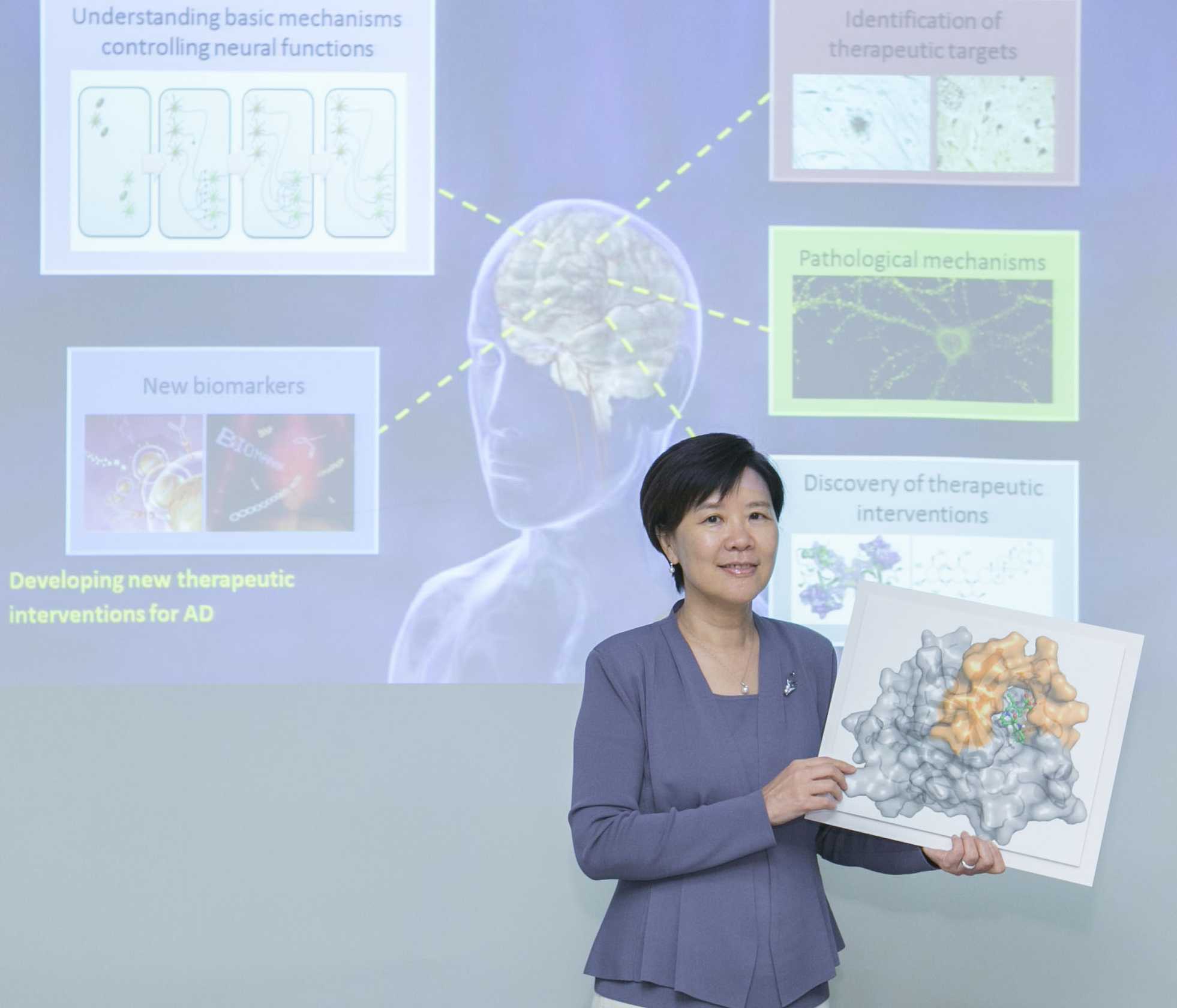|
Alzheimer’s disease (AD) is a progressive, degenerative brain disease affecting people over 65 years old mostly. AD patients suffer from memory loss, impaired reasoning and judgment, and reduced mobility. In its advanced stages, the disease can be fatal. In 2009, AD affected about 103,000 people in Hong Kong. It is estimated the disease will affect as many as 332,000 people by 2039. Currently, there are different treatments targeted to relief the symptoms related to AD but no cure has been found so far. However, a recent scientific discovery at HKUST may change everything and bring hopes to patients and their families.
Professor Nancy Ip, Dean of Science, also Director of State Key Laboratory of Molecular Neuroscience and Morningside Professor of Life Science, has been conducting research in the area with her team for over a decade. Recently, they identified a molecule in the Chinese medicinal herb gou teng (Uncaria rhynchophylla) which can inhibit protein EphA4 from being over-activated. A protein found on the surface of brain cell, EphA4 causes deterioration in learning and memory abilities when over-activated.
"We hope our findings will help to target early abnormal changes in Alzheimer's patients and slow the progression of the disease," Ip said at the University’s press conference.
The team used two groups of mice, one with AD and one without, in their experiments. The ones fed with the small molecule rhynchophylline in gou teng for three to four months showed improved memory.
Ip said it would take another 5 to 10 years to develop a drug with the use of the molecule. She advised against anyone taking the Chinese herb in the hope of curing the disease. “The levels of rhynchophylline would be too small to have an effect,” she explained. The team is seeking to work with drug manufacturers and medical schools.
The findings were published in the authoritative Proceedings of National Academy of Sciences of the United States of America (PNAS) in July 2014. The research was in collaboration with Professor Xuhui Huang of the Department of Chemistry, and supported by the Innovation and Technology commission, Hong Kong Research Grants Council and the SH Ho Foundation. |
|
 |
| Prof Nancy Ip. |
|
 |
| A small molecule rhynchophylline, identified from traditional Chinese medicine database, binds to a new molecular target of Alzheimer’s disease EphA4. |
|
|